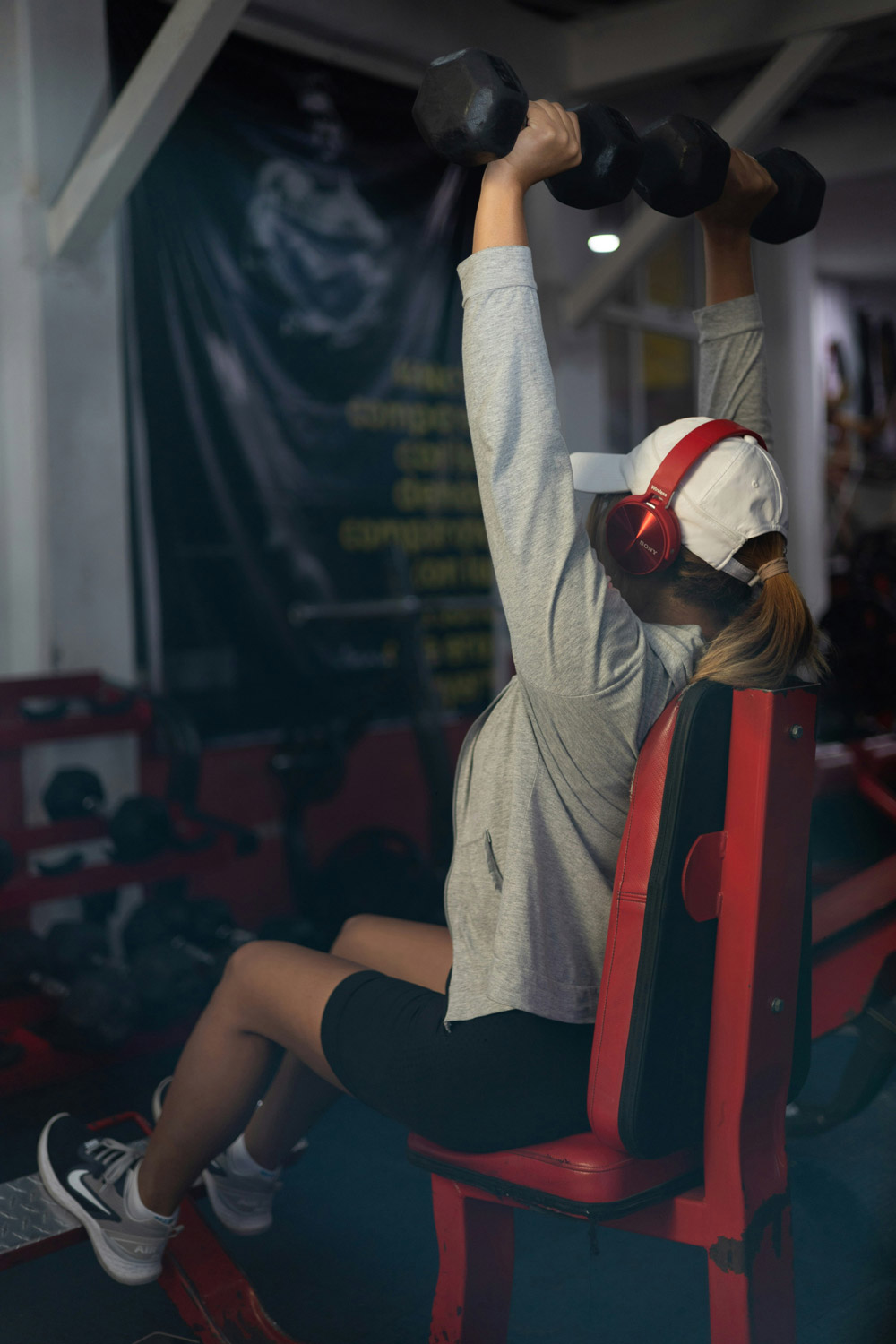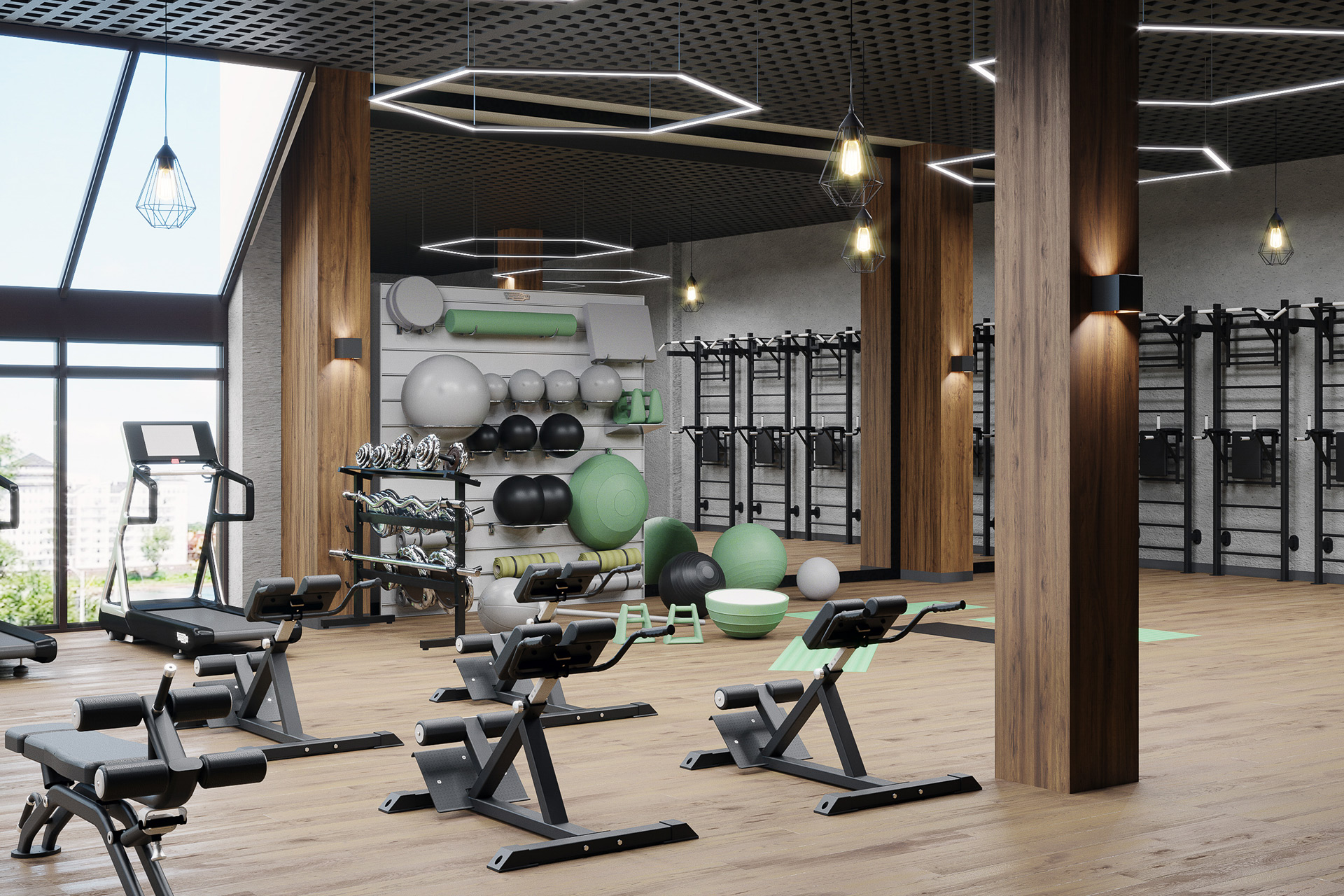
Why Is Strength Training So Important For Women Over 40? A Doctor Explains
By
3 months ago
Here's why lifting weights is crucial for longevity
Lifting weights is associated with a plethora of benefits whatever your age or sex, but studies show it’s particularly important for women as they get older. Not only is resistance training pivotal for keeping strong bones and joints, it can help with many of the symptoms of perimenopause and menopause, from brain fog to sleep disruption. Here, we find out more from the experts at Menotracker, the app helping women navigate menopause, about the benefits of strength training for women over 40.
What Are The Benefits Of Strength Training For Women Over 40?
‘From a medical perspective, women over 40 face a perfect storm of physiological changes,’ notes Menotracker’s medical advisor Dr. Sabrina Nothdurft. ‘We begin losing muscle mass in our thirties, and as we approach perimenopause, declining oestrogen levels accelerate both muscle loss and bone density reduction.’
Strength training, however, can act as a ‘preventative medicine’, adds Dr. Nothdurft. As well as ensuring our bodies maintain muscle mass and boosting cardiovascular health, lifting weights can help maintain the metabolic rate that naturally slows as we age. It can also improve insulin sensitivity, she explains, lowering our risk of developing metabolic dysfunction and Type 2 diabetes.
There’s an abundance of scientific evidence to back this up. One landmark study into the topic, published in Journal of Exercise Rehabilitation, found that premenopausal women over 40 gained two percent of muscle mass and lost an average of three percent body fat after following a 12-week resistance training programme. Not only that, but the results showed the training had also had a positive impact on their appetite-regulating hormones, with leptin levels decreasing and adiponectin (which reduces inflammation and improves insulin sensitivity) levels increasing.

Getty Images
How Can Strength Training Help With Perimenopause Symptoms?
Perimenopause, the transitional phase before menopause, can begin months or years before your periods stop. Normally occurring between the ages of 45 and 55, it’s a time when many women experience hormonal changes, including hot flashes, headaches, joint pain, brain fog and mood swings. ‘Many women don’t realise how interconnected their perimenopause symptoms are,’ says Sonja Rincón, CEO of Menotracker. ‘Hormones really do impact every aspect of your life, from sleep disruption to joint stiffness to mood fluctuations – and introducing a simple thing like strength training into your routine can improve these symptoms.’
Exercise is proven to regulate the stress hormone, cortisol, which can make hot flashes and mood swings worse. But Rincón points out that the mental effects are often even more impactful: ‘there’s also a confidence element – when you feel physically strong, you’re better equipped to manage the emotional and mental challenges that perimenopause can bring.’
Weight gain can also be a symptom of perimenopause, and Dr. Nothdurft explains that strength training can help ‘combat the fat accumulation that often accompanies hormonal changes, and improved muscle mass supports better glucose regulation.’ Plus, those experiencing brain fog may find this decreases upon taking up weight lifting, as studies show regular workouts can boost cognitive function.
Can Women Start Strength Training At Any Age?
It’s never too late to start, says Dr. Nothdurft – provided your workouts are approached sensibly and responsibly. However, if you have a cardiovascular condition or another health concern, she recommends getting medical clearance before taking up any fitness programme, and working with a qualified personal trainer.
‘I see so many women who think they’ve missed their window or that it’s somehow too late, but the research consistently shows that women experiencing perimenopause can build strength and muscle mass,’ adds Rincón. ‘The key is starting where you are, not where you think you should be. Even if you’ve never lifted a weight in your life, your body will respond positively to progressive strength training.’
For a bit of inspiration, read our editorial director Lucy Cleland’s transformative experience of taking up a three-month strength training programme ahead of her 50th birthday.
Which Strength Exercises Are Best For Women Over 40?
Dr. Nothdurft suggests prioritising compound movements, exercises which work multiple muscle groups and mimic real-life movements. Think deadlifts, squats, lunges and chest presses. It doesn’t necessarily need to be in a gym either: the low-impact, at-home workout Pvolve (popularised by Jennifer Aniston) was recently found to be especially beneficial for women between the ages of 40 and 60, with research from the University of Exeter linking it to better lean body mass, dynamic balance and flexibility.
Ultimately, it’s about finding something you enjoy. ‘What I love about strength training is that it can be completely personalised to what works best for your body and what movements you enjoy,’ says Rincón. ‘Some people might start with bodyweight squats and progress to weighted versions, whilst others begin with resistance bands.
‘The most effective exercise is the one you’ll actually do consistently. That said, functional movements like step-ups, lunges, and carrying variations are brilliant because they translate directly to daily activities – carrying shopping, climbing stairs, or lifting children.’
























